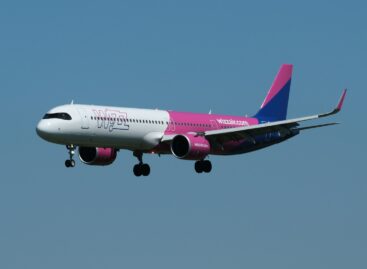Wine from Italy can also be delivered by plane
Travel just got easier at several Italian airports. According to a report by ANSA, new regulations have come into effect at terminals equipped with next-generation scanners. The changes include three major updates—at least one of which directly affects international travelers, including those from Hungary.
No ID Required, Just a Boarding Pass
 Italy’s Civil Aviation Authority (ENAC) has announced that at gates using the latest security scanners, passengers are no longer required to show personal identification documents, such as a passport or ID card, alongside their boarding pass. The goal is to streamline the boarding process and reduce wait times.
Italy’s Civil Aviation Authority (ENAC) has announced that at gates using the latest security scanners, passengers are no longer required to show personal identification documents, such as a passport or ID card, alongside their boarding pass. The goal is to streamline the boarding process and reduce wait times.
However, not everyone is convinced. Critics argue that this may open the door to potential misuse, as it could allow someone to board a plane using another person’s boarding pass—though airlines still reserve the right to implement stricter ID verification procedures.
Bring That Bottle of Wine or Olive Oil—But Know the Rules
Perhaps the most exciting change for international travelers: as of July 26, liquids in containers larger than 100 ml are now permitted through security, but only at airports equipped with the new scanners.
These include:
-
Milan Malpensa
-
Milan Linate
-
Milan Bergamo
-
Rome Fiumicino
-
Catania
-
Bologna
-
Turin
This means you can now bring home that bottle of Limoncello, pistachio liqueur, olive oil, or wine without overpaying at the airport shop—as long as you’re flying from one of these equipped airports. A word of caution: if you’re connecting through an airport that does not yet use the new scanner technology, your liquids may still be confiscated.
Large Pets May Be Allowed in the Cabin
Another change—though affecting a smaller group of travelers—is the option to bring larger pets (primarily dogs) into the cabin, provided they are housed in a carrier secured to the seat near the window. This rule remains theoretical for now, as airlines can decide individually whether to allow this option and what fees to charge.
These new policies currently apply only at the listed airports with updated scanning systems. If the initiative proves successful, it may inspire broader adoption across Europe and beyond. In the meantime, travelers are advised to check the latest guidelines of their departure airport and airline to avoid last-minute surprises.
Related news
MBH quick analysis: Tourism will continue to soar this year
🎧 Hallgasd a cikket: Lejátszás Szünet Folytatás Leállítás Nyelv: Auto…
Read more >Related news
Innovations, success stories and awards on the same stage
🎧 Hallgasd a cikket: Lejátszás Szünet Folytatás Leállítás Nyelv: Auto…
Read more >NAV: Women’s Day inspections begin
🎧 Hallgasd a cikket: Lejátszás Szünet Folytatás Leállítás Nyelv: Auto…
Read more >









